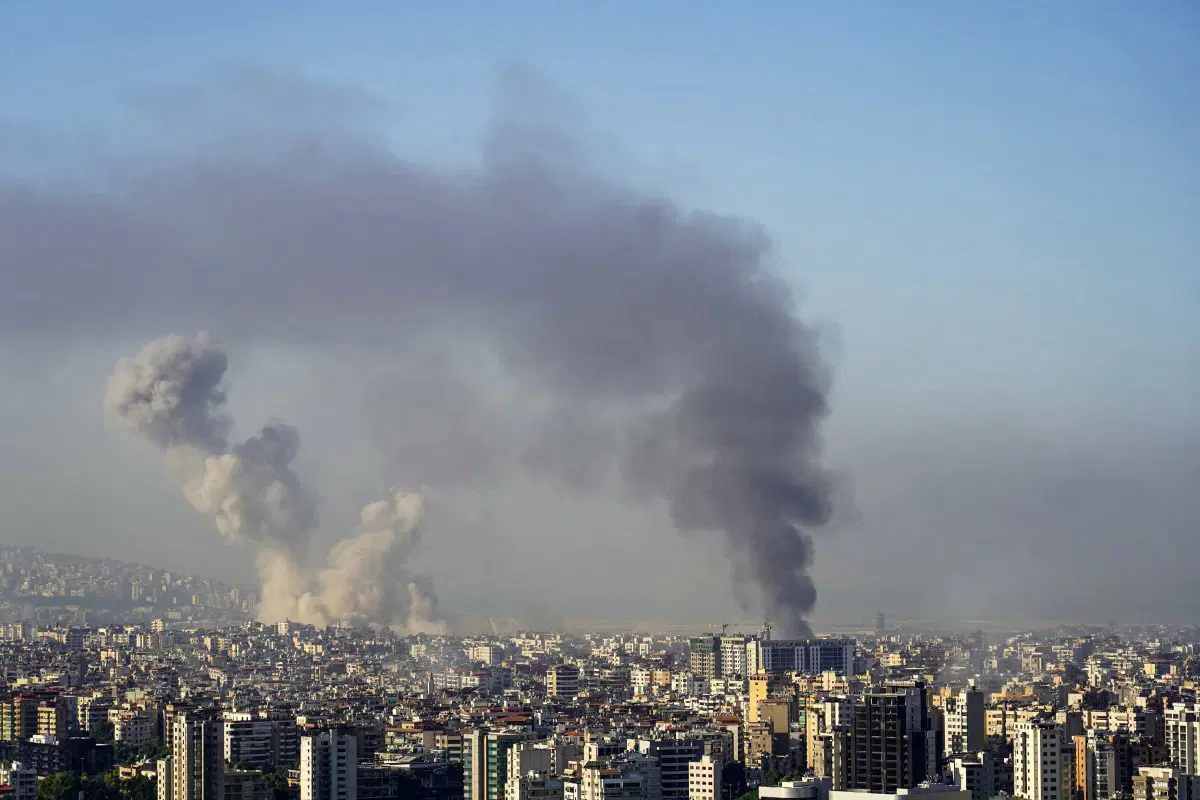The recent escalation of violence in the region has seen Iran’s second missile strike on Israel and increased rocket fire from Hezbollah, with attacks extending from allies in distant locations such as Yemen. This surge in hostilities occurs just days before the first anniversary of Hamas’s attack on Israel on October 7.
Ibrahim Nazzal, a displaced resident in downtown Beirut, shared his despair, stating, “We want the war to stop so we can go back to our land. All our homes are gone. I don’t know what we will go back to.”
Israel, having faced nearly a year of conflict following Hamas’s unprecedented assault, is now focusing on its northern front, aiming to facilitate the return of tens of thousands of Israelis who have been displaced by Hezbollah’s rocket attacks.
Since September 23, Israeli military actions against Hezbollah positions in Lebanon have intensified, resulting in over 1,110 casualties. Reports indicate that Hezbollah fighters have engaged Israeli forces near the border, claiming victories in forcing Israeli troops to retreat. In response, the Israeli military asserts it has killed 250 Hezbollah fighters this week and targeted a militant command center located within a mosque in Bint Jbeil.
This recent wave of attacks has led to the deaths of an Iranian general and several Hezbollah commanders, including the group’s leader, Hassan Nasrallah, which has been seen as a significant blow to Hezbollah.
Iran’s Supreme Leader, Ayatollah Ali Khamenei, publicly expressed support for the resistance, stating that the groups will not back down in light of recent losses. In the context of the Iranian missile strike, U.S. President Joe Biden cautioned against targeting Iranian oil facilities, though discussions regarding potential actions were ongoing.
The Iranian missile strike, framed by Tehran as retaliation for the deaths of key figures, resulted in one fatality in the occupied West Bank. Satellite imagery has shown damage to the Nevatim air base in southern Israel. Additionally, Israeli bombardments in Lebanon have rendered at least four hospitals inoperative, while a U.N.-organized medical aid shipment recently arrived in Beirut.
Reports indicate that an Israeli strike on Friday severed the main international route to Syria, aimed at disrupting weapon transfers. Lebanon’s disaster management unit has reported that over 374,000 people, predominantly Syrian refugees, sought refuge in Syria in the last week of September. The U.N. peacekeeping mission in Lebanon confirmed that its forces “remain in all positions” despite Israeli requests for repositioning amidst ground incursions.

